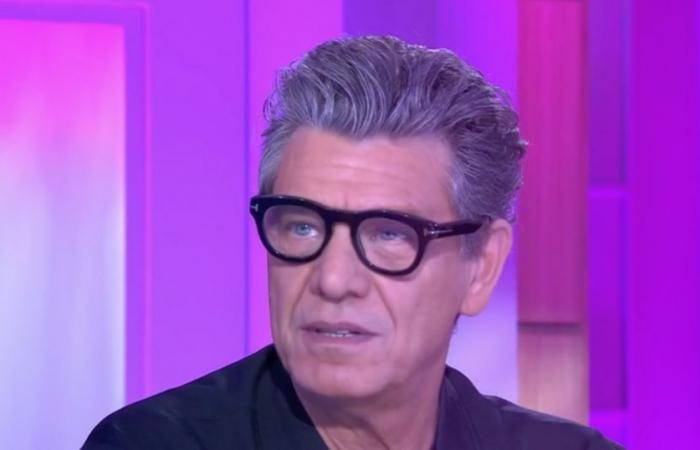It’s one of the biggest sorrows of his life. Marc Lavoine lost his mother Micheline Collin in 2011 as a result of Lypemania disease. “It’s a little deeper than melancholy. My mother suffered from this disease. It’s a melancholy a little higher than the others“, he explained in all sincerity on the set of the show We are not in bed in 2018, “You know, melancholy people are people who have trouble breathing.” Painfully, he remembered having “saw his mother gradually wasting away and breathing mechanically”: “She was no longer even able to say I love you to the people she loved, I think the most, her children”he added.
This Saturday January 18, 2025, Marc Lavoine was the guest on the show C the weekly on France 5 to promote his new novel When the horses arrivein which he pays tribute to his mother. The journalist Aurélie Casse then questions him about lymphamania, “the illness left by his mother“. Not without emotion, the 62-year-old singer responds: “Look, lymphamania is what she had. I thought I had it, because I thought it was my fault. I thought his death was my fault.” So, Adriana Karembeu’s companion denies also suffering from this disease. He continues: “I took this illness from her (…) I didn’t really want to talk about it because it was her business. I thought it was mine because we lack humor. When someone dies, we say ‘it’s my fault’ when it’s not your fault. She died because she was worn out, because she was tired, because she didn’t. could no longer.”
Marc Lavoine has long felt guilty about the death of his mother
This feeling of guilt, the interpreter of She has gunshot eyes had already mentioned it last Sunday January 12 in the show Seven to eight on TF1. For the portrait of Audrey Crespo-Mara, he said that his mother had been operated on three times and that she unfortunately never recovered. “Second time, they put her back to sleep. It created edema. They put her back to sleep three times. She was very fragile under the anesthesia. I blamed myself for that for a long time.”he remembered. “She died badly, my mother”the artist also admitted, “I remember being at home and hearing myself say, ‘If you don’t get her out of there, she’s going to die.’ She was put in a clinic near her house where I didn’t take her out. ” A painful memory that today the artist evokes with greater distance and calm.






